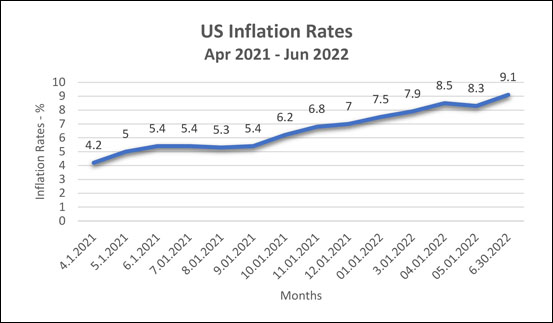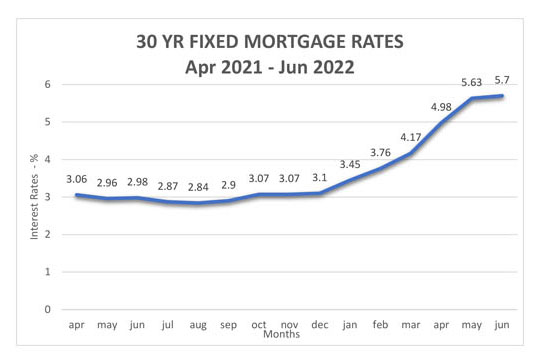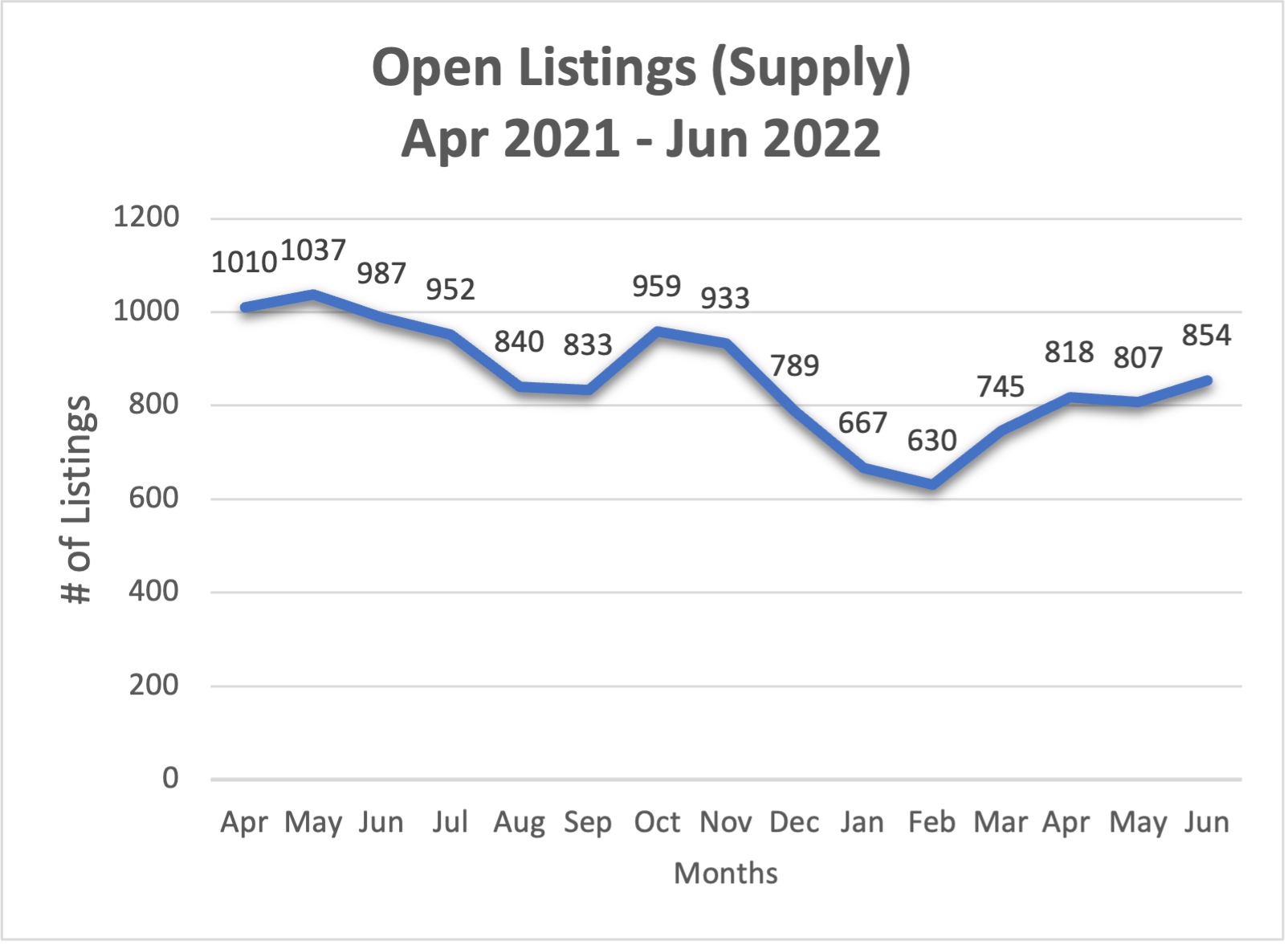
Dear Subscriber,
 Welcome to this second edition of the “Upper West Side Real Estate Market Bulletin”, a monthly digital newsletter that covers the state and direction of our local real estate market.
Welcome to this second edition of the “Upper West Side Real Estate Market Bulletin”, a monthly digital newsletter that covers the state and direction of our local real estate market.
It will feature three unique aspects:
- Focus on our local Upper West Side residential real estate market;
- Identification and evaluation of the principal forces that drive our market; and
- Plain and simple language hospitable to our lay readership.
Market Summary
Our current market is languishing in a state of caution. Sales volumes and prices are softening as a concerned marketplace witnesses the worsening of the forces that drive real estate sales and price levels, which are explored below.
Inflation
 The national inflation rate has skyrocketed in the past year. The costs of food, gas and oil are forcing homeowners to divert funds they normally might have applied to mortgages and down payments to these now-pricier essential commodities. The demand for housing will likely fall, consequentially, as will resultant housing prices and sales.
The national inflation rate has skyrocketed in the past year. The costs of food, gas and oil are forcing homeowners to divert funds they normally might have applied to mortgages and down payments to these now-pricier essential commodities. The demand for housing will likely fall, consequentially, as will resultant housing prices and sales.
President Biden is planning a trip to Saudi Arabia to liberate more reserve oil and gas into the global market but the success of this effort is problematic to predict. Some economists are suggesting that a global recession is not unlikely. At any rate, persistently high inflation rates will continue be a drag on our real estate market.
Covid’s disruption of supply side distribution channels continues to manifest in inflationary price levels. Alleviation of these inflationary pressures appears to be slower than hoped for, sustaining historically high rates and challenging economic growth.
Mortgage Rates
 Mortgage rates have virtually doubled over the past year, largely because the Fed, trying to stimulate a Covid-19 stricken economy, pumped excessive amounts of money into the economy, causing demand for goods to exceed supplies and prices to escalate. Realizing its error, the Fed has since reversed its easy money policy but which has yet to ease mortgage rates, sustaining the drag on our real estate market.
Mortgage rates have virtually doubled over the past year, largely because the Fed, trying to stimulate a Covid-19 stricken economy, pumped excessive amounts of money into the economy, causing demand for goods to exceed supplies and prices to escalate. Realizing its error, the Fed has since reversed its easy money policy but which has yet to ease mortgage rates, sustaining the drag on our real estate market.
Political Angst
The midterms elections may result in a Republican takeover of the House and the Senate. This would likely cause Biden’s agenda to be blocked for the remainder of his term, including the January Committee. But how would this impact GDP growth? Although Democratic administrations have historically record higher GDP growth than do Republican administrations, projection of GDP performance is fraught with uncertainty. And uncertainty, we all know, breeds inaction when it comes to real estate transaction.
What do the tea leaves say?
For our purposes, the tea leaves are the graphs of UWS median sale prices and the supply of open listings. Both of these key metrics indicate a continuing softening since the Median Sale Price hit an inflection point in February, following a downward trend since. June data confirms that trend.


Are you considering buying or selling an apartment this year? If so, know that we’re facing a high-risk economy that could tank at any moment, as the above discussion warns. This is not all bad news. Some very good deals can be scored in a down market providing that one is adequately prepared and resourceful.
If you’re interested in learning more about this option, just click on the link below to review methods for identifying and transacting an exceptional down market deal.
Thanks for your interest and stay tuned!

Data provided by Urban Digs










